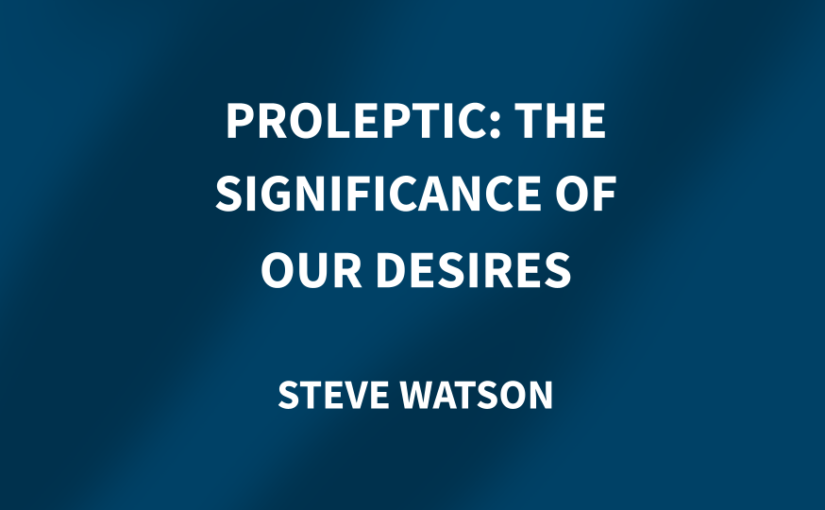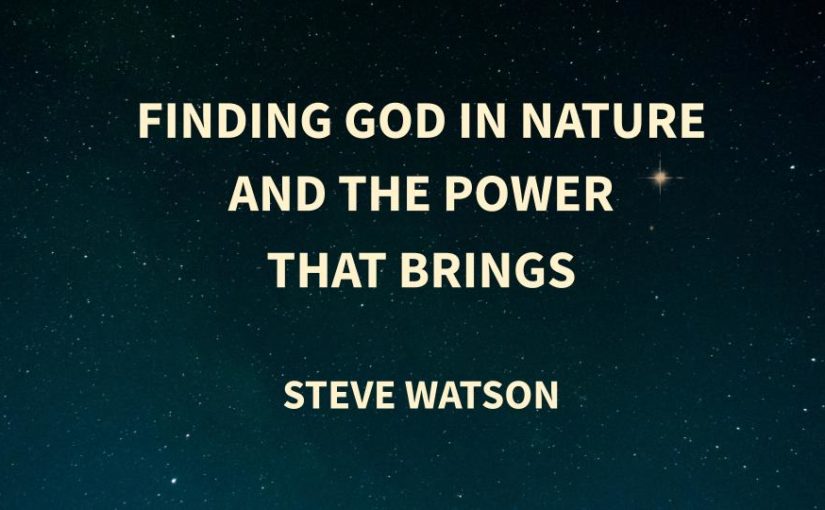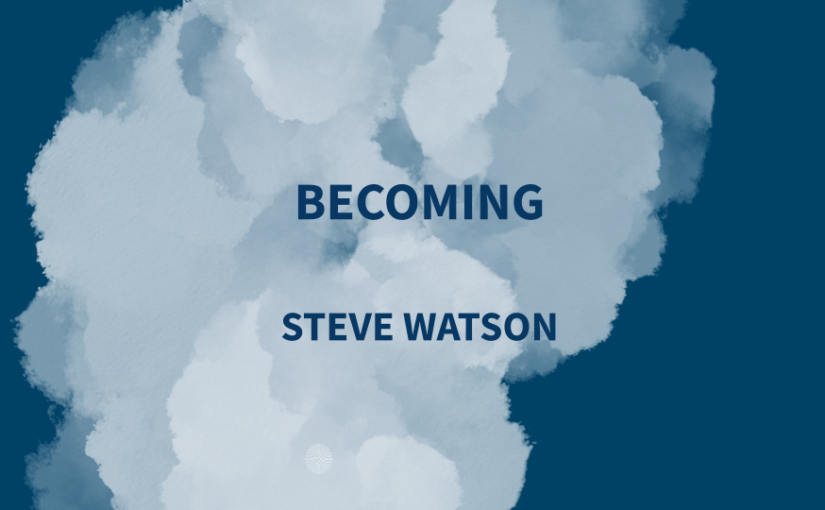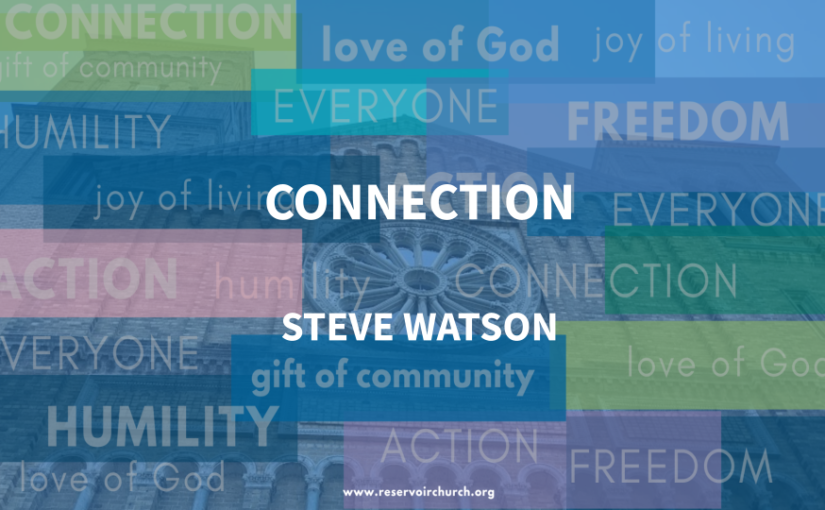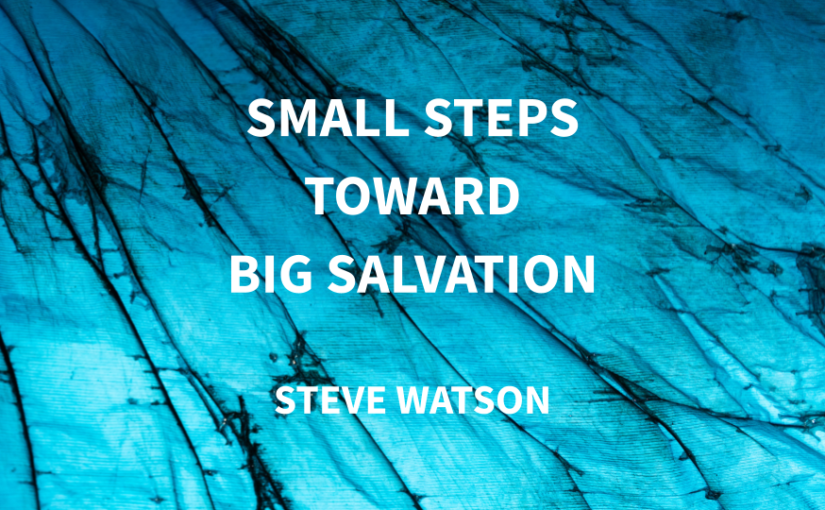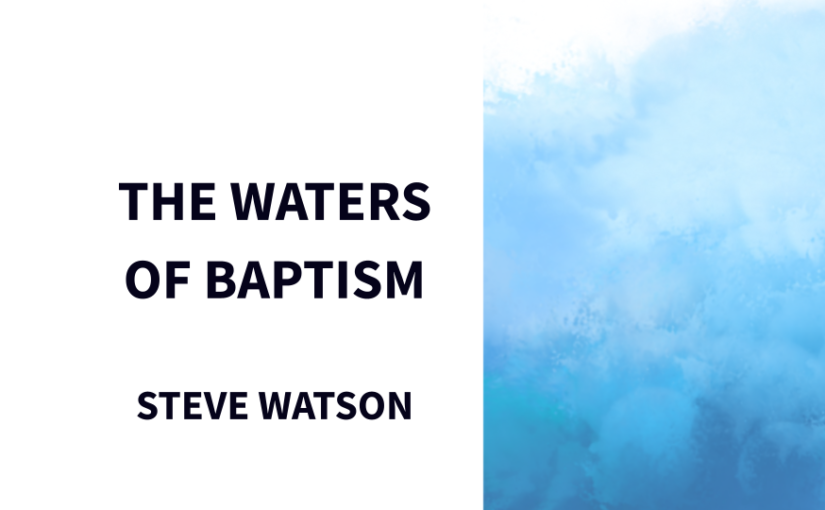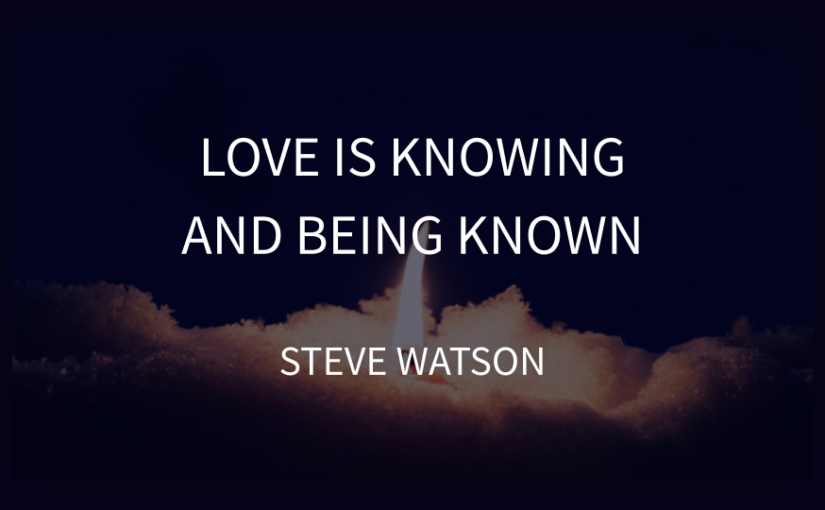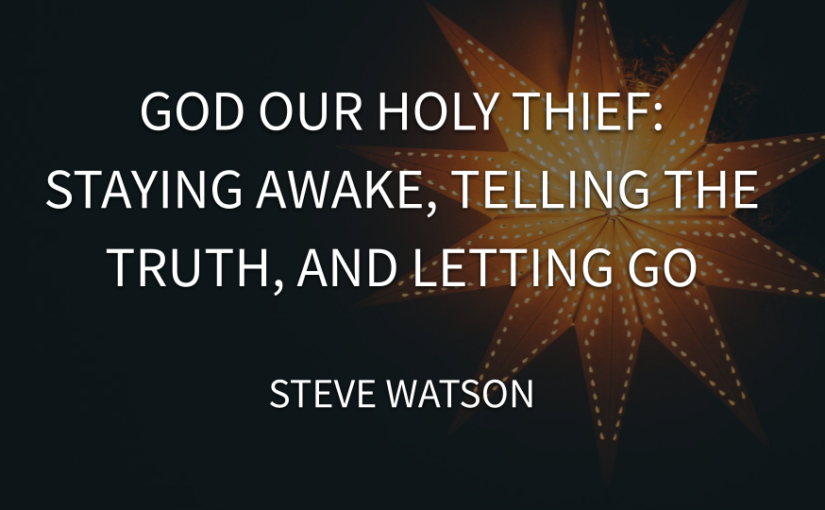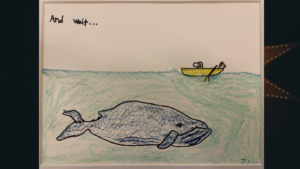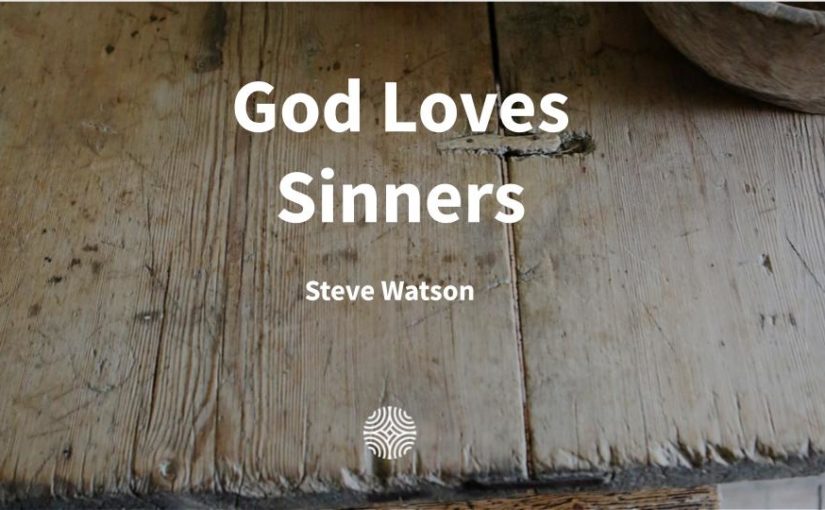I meet with a retired priest about once a month: a confidant and guide who listens to me, asks me questions, shares perspective, and prays for me. It’s a conversation called spiritual direction.
We open our times with silence and a time of prayer, before I begin. And one of the times we met last year, during the silence, what came to mind was that I was so unhappy with the state of two important relationships in my life.
I hadn’t expected to talk about these folks. I hadn’t even realized they were on my mind. But when we sat in silence, this is what came, so I told my spiritual director about these people and about my disappointment with where things were in our friendships.
And as I told him about this, I found myself tearing up. I was noticing how much this mattered to me. But I also found myself saying that I not only didn’t know what to do next, but truthfully, I didn’t want to do anything at all. I wanted better relationships, but I was tired of trying, so where did that leave me?
And my partner in this conversation just listened, asked me a few questions, let me know that he could see how important this was to me, and reminded me of a couple other burdens I’d shared with him before, let me know that he could see I was carrying a lot and he felt with me in this.
It’s so good when someone listens to you like this, isn’t it? What a gift to receive, what a gift to give to listen like this. It’s part of what love looks like, this careful listening.
Yeah, so then my spiritual director asked me:
Could I share a thought with you?
And I told him:
Of course, please do.
And he told me,
I think your desires here are proleptic.
And I was like:
You’re going to have to remind me what that word means.
And he did, and it has made a big difference to me.
A difference I would like to share with you.
More in a minute, but I’ll say for now that prolepsis has to do with the things we really want.
Maybe not necessarily the little wants, but definitely the big wants underneath those.
I don’t know about you, but I wasn’t necessarily taught that what I want matters very much, at least not to God.
But if that’s the case, it’s funny that Jesus asks people about what they want, even when you’d think it would be obvious.
There’s the time when Jesus is first taking on students as a rabbi, and two young people ask if they can join him. We read:
John 1:38a (Common English Bible)
When Jesus turned and saw them following, he said to them, “What are you looking for?”
Jesus doesn’t start off with a syllabus or an interview or an introduction. Actually, he doesn’t start his relationship as a rabbi by saying anything at all. He listens. And what he’s listening for is what they are looking for. He wants to know what they want.
Another time, maybe a couple years later, Jesus is leaving the town of Jericho, on his way to Jerusalem. Tensions were rising around Jesus’ work. He had more fans and followers than ever before, but also more powerful detractors. All the good, bad, and ugly around his work the past couple of years seemed to be coming to a head. This is an important time for Jesus, a stressful time, and as he’s leaving Jericho, amidst a crowd of people, a beggar who’s blind keeps calling out, trying to get Jesus’ attention.
It’s a hassle, an inconvenience, or it would be to me. But to Jesus, it’s a human being, a brother, a fellow image bearer of God. So Jesus stops and calls him over. And he says this.
Mark 10:51 (Common English Bible)
Then Jesus said to him, “What do you want me to do for you?”
Maybe it seemed obvious to everyone else. This is a beggar, of course he wants alms, he wants money. And he might expect that Jesus would give some. He’s a religious leader of sorts, with a reputation to uphold.
But Jesus doesn’t assume anything, and as usual, he doesn’t speak first, he listens. He wants to know what we want.
And the man who was begging goes bigger than maybe anyone was expecting. He says:
Rabbi, I want to see.
And Jesus says:
OK, go, your faith has healed you.
And the gospels tell us he regained his sight and joined Jesus’ students following him to Jerusalem.
What a story, very dramatic, but again, it starts with Jesus listening for what we want.
Why is this?
Why does Jesus care what we want?
I think one, he’s a good listener. And what we want is important to us, so a good listener will want to know.
I think Jesus also probably knows that we don’t always know what we want, or at least we don’t pay attention to it.
This was the case for me when I went to meet with my spiritual director. I had these griefs and these hopes regarding a couple longtime, important relationships in my life. But for a number of reasons, I’d stopped noticing how much this mattered to me, until in the silence before a very good listener, and I think likely with the prompting of God’s spirit too, the want reemerged for me to pay attention to.
This happened to me last fall in a more public way, in my work here as a pastor. I was engaged with our church Board in some planning. We’d been aware of a few financial needs for the church, which is why going into this winter, we were praying for and asking people and households to consider or reconsider giving regularly. Thank you again so much for those of you who sustain this community with your giving.
We were also looking at a couple of old, delayed maintenance issues on our property that if we didn’t take care of in the next couple of years, would become more of a problem, and wondering how to pay for that.
And it seemed like maybe we should try to raise a little bit of extra money this year, our church’s 25th anniversary year. So I came to the Board with a plan for a very modest sized fundraising campaign. But later, when I talked to one of our Board members, they said to me:
Steve, you know what you’re doing is fine, but why is it so small? It’s not really inspiring to me at all. Have you forgotten about what you really want?
And he reminded me about some bigger plans and hopes we’d talked about in our Board for the church, plans and hopes that were important to me, had become important to this Board member.
And I realized, one, I hadn’t prayed about this area of the church recently at all. I was responding to my fear that we wouldn’t have enough money to take care of the church property, and just urgently putting a plan together. So I decided to take a few days to pray about this again.
And then two, when I prayed, I felt like the Spirit of God came to me as a kinder, gentler version of that board member. I felt invited by God to consider this question of Jesus:
- What is it that you’re looking for?
- What do you want me to do for you?
- What do you want?
And as I prayed, I remembered what that Board member was reminding me of, that for years, I’d wanted the church to be freed of our debts and fully released to powerful generosity around all our mission and vision.
See, when we first acquired this building back in 2004, it was through a powerful, two year period of immense generosity from the congregation at the time. A young congregation, several hundred people in their 20s and 30s, had raised almost four million dollars in a very short amount of time to purchase this property. There were a lot of stories of great financial provision, and enthusiastic and joyful giving.
And so here we are, in a property that has been a huge gift to this church, to a public school we share it with, and to the community at large.
But we also took on a fair bit of debt to make that happen, just as any of us do if we’re able to buy a home. But unlike a home mortgage, commercial debt is generally a less friendly thing to carry. So our church has had a great run these past 18 years since then, but we’ve had to divert a fair bit of funding toward debt payments as well.
And I’ve dreamed of the day when we’d be free from all that debt and be able to do some special things together with all that freedom.
When I came back with that desire I felt encouraged to pay attention to again, our Board members agreed and it seemed like this 25th anniversary would be a great time to see this dream into being.
See, I’ve said that our desires matter a lot to us. They are by definition important to us, so they’ll be important to any good listener too, God included.
I’ve also pointed out that it’s easy to forget what we really want, or to stop paying attention to it, even to bury it, especially if it doesn’t come true right away.
But three, I believe that our desires always tell a story we need to pay attention to, and sometimes that story is the truth.
The community group I lead that meets on Saturday mornings studies the Bible together every week, and we studied part of the book of Hebrew poetry called Ecclesiastes this fall. It’s mostly pretty gloomy, and it was depressing enough that we basically voted to move on after 3 or 4 weeks.
But before we did, we read the chapter with this beautiful line in it.
Ecclesiastes 3:11 (Common English Bible)
11 God has made everything fitting in its time, but has also placed eternity in their hearts, without enabling them to discover what God has done from beginning to end.
God-sized eternity in our hearts, but a lack of God-sized knowledge or abilities. The glory and the humility of being a human, this gives a sense of that.
In our center, call it heart, gut, mind, spirit, whatever, in our core desires, is a longing for what’s good, what’s true, what’s beautiful.
Ultimately, that’s a longing for God, I think. The ancient North African theologian Augustine thought so. He famously wrote,
You, God, have made us for Yourself, and our heart is restless until it rests in You.
But in saying we long for God, it’s not just God in a narrow sense, like longing for prayer and worship. Ecclesiastes immediately talks about the gift of great meals and enjoying the fruit of hard work. I think this verse speaks to the desire we have for things we could call lasting, eternal, maybe spiritual.
Sometimes our desires tell the truth, not just about what we want, but about what is yet to come, about what God is longing to bring into being as well.
This is what my spiritual director meant when he told me he thought my longings were proleptic.
Prolepsis is the representation of a thing before it’s actually so. It can be a figure of speech, like when you see a doomed person and you say: he was a dead man when he entered. People on their way to their execution can be called “dead men walking.” That’s a proleptic figure of speech. The future represented as true in the present.
But prolepsis isn’t just a figure of speech. It’s any time we treat the future as if it’s real, like it’s already on the way to happening.
So maybe, just maybe, our desires are also important because they’re a window into future possibilities God wants us to see or hope for.
Let me give you two places where we think this way, both of which have their strengths and their problems.
One is in vision and goal setting, like in business or organizational planning. Often when organizations think about their future, they listen to the desires people have for what that future will be like. And they try to translate those desires into words and pictures people agree upon and find inspiring. And then they treat those desires as real and try to make them happen.
Another place is this idea of manifesting. Manifesting is this idea of thinking your dreams into reality. Like: I manifest this new job, or this prosperous life, or I manifest this beautiful, agreeable partner into being. It goes back to an idea in a book that got really popular right after we moved into this building, The Secret, that argues the secret to success is this positive attitude and positive visualization that attracts the good things to us that we imagine. You could trace that back to a 1952 book by the minister Norman Vincent Peale, called The Power of Positive Thinking. That book had a huge impact on Donald Trump’s daddy, and on Trump himself too – who liked the idea that you could get whatever you want if you just want it enough.
I’m not actually pushing for either of those things at all. I mean goals and planning have important places in life, and positive, optimistic thinking and visualizing can be useful too. In some cases, it probably does make it more likely you get what you want. Optimism and confidence can help.
Both of these things, though, can be idolatrous. They can exaggerate our abilities, as if we can control the future just by wanting it badly enough. And so they can bring shame to people who don’t get what they want. Like if I get sick or if I have financial problems, is it always or even usually because I just didn’t want to be healthy or wealthy badly enough?
No way!
Prolepsis – treating our desires as important, as worth paying attention to, even as telling us a story that is at least partly true – isn’t magic, and it doesn’t give us control of the future.
A proleptic take on our desires is simply to trust that in our wanting, or maybe sometimes in the deeper want behind the want, there is a truth about the Spirit of God’s moving. There’s truth about possibilities for what both we and God long for.
So as I talked with my spiritual director that day, and fleshed out what I longed for in these two strained relationships, even though I wasn’t motivated to do anything, I found myself asking my pastor:
So what should I do?
And he was like:
Respectfully, I think that’s the wrong question. You’re not God after all, are you?
He affirmed for me that I’ve come honestly to my lack of motivation. I can’t control the other people. I can’t control the future. I can’t even fully control myself.
Sometimes we’ve tried and tried, and it’s time to stop trying for a little while.
He was like maybe this is an invitation to pay attention, to hold your desires before God, to be open to discernment, to let these desires sit for a while and see what I learn about them – see what’s in the end good and true and beautiful about them, and see maybe if there’s parts I want to let go of as well.
I think this is what the scripture that is most famously negative about our desires has in mind. The prophet Jeremiah says:
Jeremiah 17:9-10 (Common English Bible)
9 The most cunning heart—
it’s beyond help.
Who can figure it out?
10 I, the Lord, probe the heart
and discern hidden motives,
to give everyone what they deserve,
the consequences of their deeds.
Our desires are important. They deserve our attention. They tell stories that are true. But they’re complicated. Not everything we want would we do well to have. I’ve wanted to take things that aren’t mine. I’ve wanted revenge, I’ve wanted to change the past. I’ve wanted a lot of things I’ve been encouraged to let go of.
Our hearts can be cunning, complicated, full of mixed motives and all. But God probes and sees and discerns. God has a sense of what is really good, true, and beautiful, and what’s worth letting go of for each of us.
So sometimes not just to not try so hard, but to wait too.
And to trust that God sees and hears our desires, to get real curious about them, to not just let them go, however likely or unlikely they may seem today, and to humbly see what God and what life can help you learn as you watch and wait.
Eventually, with this kind of humble paying attention before God, you’re likely to know when the time is right for you to do something.
I think this is what the psalms mean, or at least part of what they mean when they say:
Psalm 37:4 (Common English Bible)
Take delight in the Lord,
and he will give you the desires of your heart.
Trust the God that listens to you. Trust the God that inspires everything good and true and beautiful. Trust the God that will cooperate with you in seeing good futures into being.
And see how your desires change, and how life around you changes over time.
For me, with the church project, there was an immediate reaction to my re-noticing my desires and holding them before God. Almost immediately, there were opportunities to ask a few people if they share this desire, and some significant funds have already been pledged and given toward Reservoir’s debt free, generous future. We’ll share more about this exciting opportunity for our church in two or three months. For now, though, it’s been amazing for me and for our Board to be fulfilling the desires of this church as we delight and trust in God.
With those key relationships I talked with my spiritual director about, things have been moving more slowly. It’s been nothing like an instant change. Months later, things are mostly still disappointing.
But I know what I want. And I pray about it. And I’ve had a few opportunities in past months to do something about it with these folks, which have helped a little. And just knowing that God holds my hopes and that I’m doing the little that I have it in me to do, feels good to me.
Friends, God cares about what you want.
The Spirit of Jesus is with you, whispering to you in this new year:
What is it that you’re looking for? What do you want me to do for you?
Neither me nor you have the power to see all that junk into being, which frankly, I’m grateful for! We are not gods, and it’s not always time for us to do something.
But over time, our loving God will help us see what’s good, what’s true, what’s beautiful, and what’s possible in our desires, and if we pay attention, we’ll find the moments when it’s our time to do something about it too.
Pray with me:
God of Creation, God who made and loves us all,
Help us not despise or ignore our desires, but to notice and value them,
To hold them before you with openness and curiosity, that in time, you and we can make what’s good and true and beautiful possible together.
Amen.


